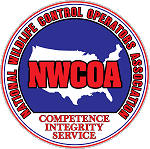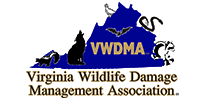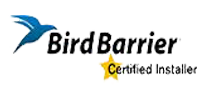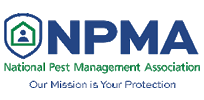Your Wildlife Professionals, Inc. provide squirrel removal and squirrel control from structures in Virginia.
Squirrel exclusion (Repairs) and flying squirrel trapping are key to effective flying squirrel removal. Knowing their biological habits, performing the necessary repairs, and the use of traps will solve most flying squirrel problems. When ideal habitat, water, and food for flying squirrels are within your property or structure, full exclusion services are recommended to prevent and or eliminate new flying squirrels from trying to enter your residential or commercial structure.
There are many different ways to get rid of flying squirrels, but if you are looking for a professional, permanent solution to your flying squirrel problem, with a written guarantee and warranted for a one year minimum, you have found one of the only companies in Virginia that can provide you with this and back it up.
Your Wildlife Professional will inspect every square foot of the exterior of your home or business looking for current and potential flying squirrel entry points. When they find these current and potential entry points they will seal them with 35 – 50 year sealant that is backed with a permanent flying squirrel proof material, install rigid screens, or chimney caps and covers. If you just repair the current entry points without sealing the potential penetration points, a different family of flying squirrels will just move to those potential entry points.
CLICK HERE to find Your Wildlife Professional in Virginia.
Flying squirrels create offensive odors and viruses due to their urine and droppings and disrupt your sleep with their gnawing. Flying squirrel removal is one of our specialties. We have helped restore peace of mind to over a thousand of residential and commercial customers over the last 18 years. Flying squirrel removal is a technical process that requires professional experience. Do not risk people’s health or yours to anybody. You can trust our trained professional staff to solve any flying squirrel problem you may have, guaranteed and warranted for a minimum of one year!
Your Flying squirrel Service Agreement will describe and identify, in written and/or graphed format, all of the inspected areas of the structure, current and potential flying squirrel entry points, contaminations, a description of the warranty, its limitations, and its time period, and a price to remove the flying squirrels from the structure.
In addition to the service agreement we may also take photos to document the inspected areas of your structure with current and/or potential flying squirrel entry points and contaminations as evidence/proof to you of the issues associated with the flying squirrels and to protect Your Flying squirrel Professional from any potential liabilities.
Your flying squirrel service agreement will also contain a description of the warranty, its limitations, and its time period. The warranty will not start until the final repairs on your structure or 100% eviction is confirmed by Your Flying squirrel Professional and you. It is limited to a family of flying squirrels entering the interior of your structure. The warranty time period will not be less than one year and will not exceed the manufacturer’s minimum service life of any exclusion material we use on your structure. Prior to your warranty expiring, we will send you a renewal notice letting you know your flying squirrel warranty is getting ready to expire. Upon the renewal payment, as stated on your flying squirrel service agreement, we will return to you structure for reinspection.
Your flying squirrel service agreement will contain a price to exclude and remove the flying squirrels from your structure. The price reflects the Your Flying squirrel Professional’s ability and experience to perform flying squirrel removal services based upon industry standards, material costs, labor, and profit.
CLICK HERE to find Your Wildlife Professional in Virginia.
What happens after the flying squirrels are removed from your structure?
Flying squirrel Exclusion is a technique where all the current and potential mouse entry points stated in your flying squirrel service agreement, are made uninhabitable or impervious to a flying squirrel by the use/application/installation of exclusion materials by Your Flying squirrel Professional.
Flying squirrel Exclusion materials are flying squirrel proof building materials or components that may be used/applied/installed/dispensed, but are not limited to, caulk, adhesives, or sealants, backer rod, chinking, foam, wire mesh, metal flashing or coil stock, chimney caps, or any other flying squirrel proof building construction materials that will prevent flying squirrels from entering your structure once the flying squirrel repairs have been completed
Flying squirrel Exclusion materials will be applied to all current and potential flying squirrel entry points that lead into the interior of your structure from the exterior of your structure. Flying squirrel entry points are any area typically above the gutter lines of your structure and any areas that may emit air draft from your structure that are greater than or equal to 1 1/4 inches round or 1 1/4 inches wide and 1 1/4 inches long regardless of its orientation.
How Your Flying squirrel Professional removes flying squirrels from your structure.
Flying squirrel removal is a process of removing flying squirrels from a residential or commercial property by the use of traps and exclusion materials.
Professional grade single door or colony humane capture traps are commonly used. Live single door cage traps are anchored on the building next to the hole. Live colony traps are anchored over the hole and the flying squirrel is forced into the trap. Once the flying squirrels are trapped, we repair the hole where they are entering so that it will not happen again.
Your Wildlife Professionals, Inc. provides rodent control, flying squirrel pest control, flying squirrel removal, flying squirrel removal, flying squirrel control, flying squirrel control, can get rid of flying squirrels, and flying squirrel infestations in the counties, cities and towns of Alexandria, Arlington, Bedford, Blacksburg, Bristol, Charlottesville, Covington, Chesapeake, Danville, Fairfax, Fredericksburg, Hampton, Harrisonburg, Lexington, Lynchburg, Loudon, Manassas, Martinsville, Newport News, Norfolk, Richmond, Roanoke, Smith Mountain Lake, Staunton, Virginia Beach, Waynesboro, Williamsburg, Winchester, Wytheville, and Yorktown Virginia.
CLICK HERE to find Your Wildlife Professional in Virginia.











